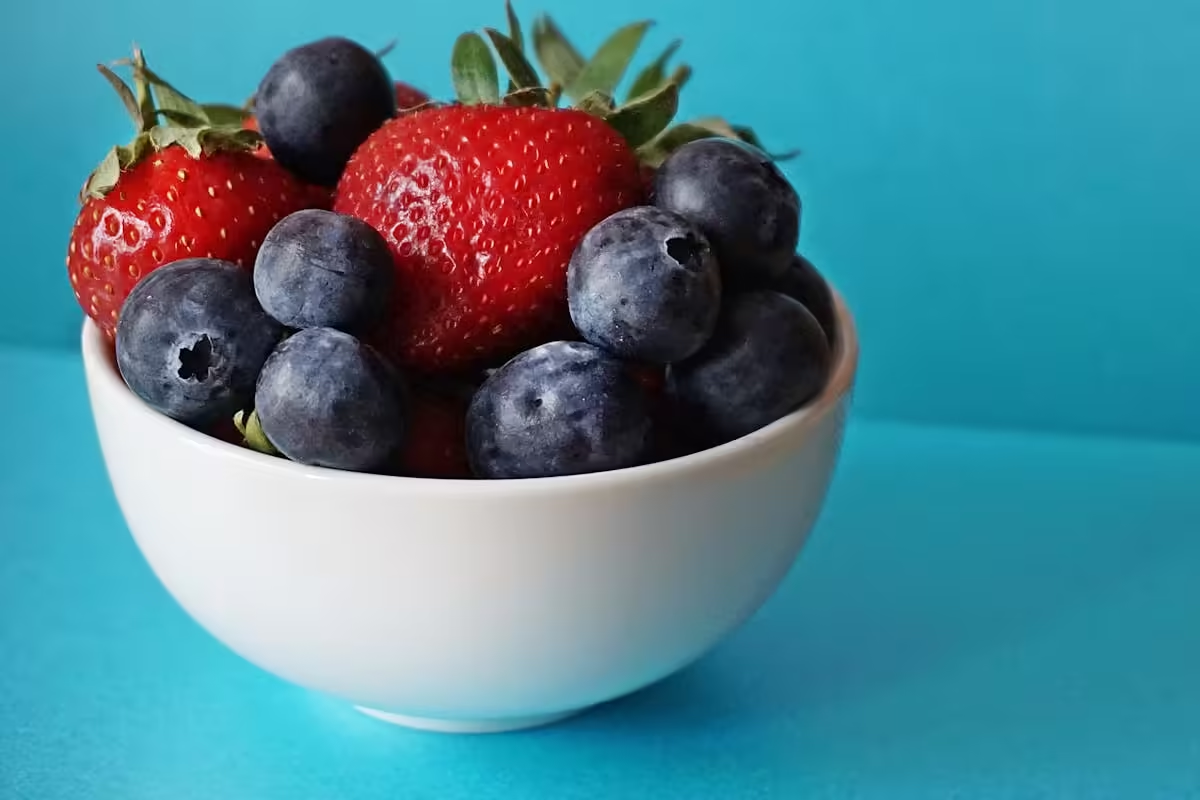The antioxidant diet is rich in agents that combat excess free radicals . This is the case of foods with a higher level of Vitamins A, C and E. Want to check out some examples? Lemon, orange, mango, blackberry, acerola, cocoa, garlic, beans, coffee, green tea, etc. In addition to the well-known fruits, spinach and liver are also some foods rich in these nutrients.
We can go beyond the vitamin groups and find antioxidants in various compounds and nutrients. Take a look:
- beta-carotene: carrots, apricots and pumpkin — that is, foods with an orange hue;
- lycopene: tomatoes, cherry, watermelon and red pepper — that is, red foods;
- resveratrol: purple grape, cocoa and blueberry;
- selenium: nuts, chia and beans.
See? The antioxidant diet is made up of a variety of foods that are easy to find in supermarkets and include in your diet to protect your body. You can vary a lot and you don’t need to spend a lot of time or money. Grape juice, portions of fresh fruit and even the famous rice and beans are great allies of this diet plan.
So, by including them in your routine, you gain superpowers to fight against an enemy: free radicals, and also have a better quality of life and increase your energy in your day to day life.
How does the antioxidant diet work?
Antioxidants balance the amount of electrons in free radicals . After all, in inadequate amounts, they can react or oxidize healthy cells, such as lipids and proteins.
Gradually, the reaction caused by the electron destroys substances present in the cell membrane, such as polyunsaturated fatty acids, which help in the development and functioning of the retina and brain. In addition, the intense destruction of these acids favors the emergence of several diseases, whether chronic or not.
In other words, the steady diet of antioxidants controls electrons and, subsequently, free radicals. This way, it is possible to avoid or minimize the problems mentioned above, which favors health and quality of life.
This occurs due to the endogenous and exogenous antioxidant defense systems. Learn more about each of them:
- endogenous system : it is composed of enzymes naturally produced by the body, although it is necessary to follow an antioxidant diet to compensate for the decrease in these enzymes with advancing age;
- exogenous system: this is the system produced from a diet rich in antioxidants, such as mineral salts, vitamins and plant substances.
It is worth noting that free radicals are molecules naturally released by our body’s metabolism . In addition to factors that are harmful to health (such as stress, pollution, smoking, etc.), our own body will produce a quantity of these free radicals.
This means that it is possible to reduce them through a quality diet, but avoiding their action and the natural consequences of the aging of the human body is an impossible task.
What are the benefits of the antioxidant diet for the body?
You already understand that the antioxidant diet helps combat excess free radicals. For a more detailed understanding of this, check out how it can help maintain health and improve quality of life.
Disease prevention
The excessive presence of free radicals is associated with the onset of several diseases. This is because the absence of an electron in molecules leads to the search for others in the proteins of the body’s cells. This search alters the characteristics of human cells and can make them toxic.
In this context, antioxidant agents control the impacts of free radicals. Therefore, it is possible to avoid several problems, such as eye diseases, premature aging , loss of elasticity, etc.
Maintaining healthy skin
The skin is the most exposed organ to free radicals. This would be sunlight and pollution, among others. Thus, it has been gradually damaging skin cells, which results in the early aging and onset of problems such as blemishes, sagging skin, and wrinkles.
Free radicals increase in the body with age. No wonder why, we see this line often written on the packages of some products: “combats free radicals and prevents early aging”.
These are actions that go hand in hand in our body. Therefore, skin aging is common, and it is a period in which efforts to protect it must be redoubled.
Immune system protection
Other cells affected by the presence of free radicals are defense cells . Thus, they can age or die, which can compromise their performance in the immune system .
Hence, the body becomes more vulnerable to diseases and health problems. From the simplest colds to some types of cancer, everything can be prevented with the help of the right foods — so an antioxidant diet is beneficial in preventing this from happening.
Reduced risk of cognitive problems
The central nervous system is also directly affected by the action of oxidants, after all, many cells are present there. Degenerative processes are related to memory loss and the development of neurological diseases, in many cases.
Oxidative stress ( which is an imbalance between the generation of oxidizing compounds and the body’s actions to combat them) can also play a central role in the emergence and development of these degenerative mental diseases , such as dementia and Alzheimer’s.
The power of flavonoids
Antioxidants are divided into two groups: flavonoids and non-flavonoids . The first group is found mainly in plants and is the greatest enemy of brain aging — in addition to reducing the risk of chronic diseases and inflammation.
That means, in short, colorful dishes are not only appetizing but necessary for the overall organism health, starting from our brain that spends 20% of all energy spent by the body.
It goes without saying that antioxidants can help in the prevention of stroke since they help in improving the flow of blood in the body, and a change in the flow of cerebral blood leads to this condition.
Reduced risk of cancer
That is, put in simple terms, cancer simply defines the abnormal growth of cells that, in one instance, would end up invading organs and tissues. As such, it wouldn’t be surprising to trace some relationship between the cell aging and disease.
Moreover, an imbalance of free radicals can lead to the development of cancer, too. Antioxidants prevent the oxidation of macromolecules and halt glycolysis in cells of cancer. As such, they reduce growth as well as survival of cells.
Heart protection
The heart is another organ, which would benefit highly with an antioxidant diet. This is because nutrients improve blood flow; as a result, there would be less blood cholesterol. In this respect, hypertension aside, risks of thrombosis and other diseases such as cardiovascular disease will be decreased due to atherosclerosis in addition.
Weight loss assistance
There are instances where obesity is associated with the presence of excess free radicals in the body. Thus, including antioxidant foods in your daily diet can help you lose weight.
This fact has been explained because of the free radicals which are capable of deteriorating some metabolic processes, which includes weight-gain. Additionally, risks such as hypertension and stroke are also more significant among people who are diagnosed with obesity.
Diabetes prevention
Of course, a balanced diet is already beneficial enough for the human body. But know that antioxidant foods are also capable of protecting the body against the development of diabetes .
Longevity
After so many health and quality of life benefits, it’s not hard to see that antioxidants increase the chances of a long life, right? By keeping free radicals in balance and the body’s cells younger and healthier, several problems related to aging can be avoided.
Your organs will function better, the occurrence of certain diseases will decrease and even your skin will become more radiant — more youthful inside and out!

